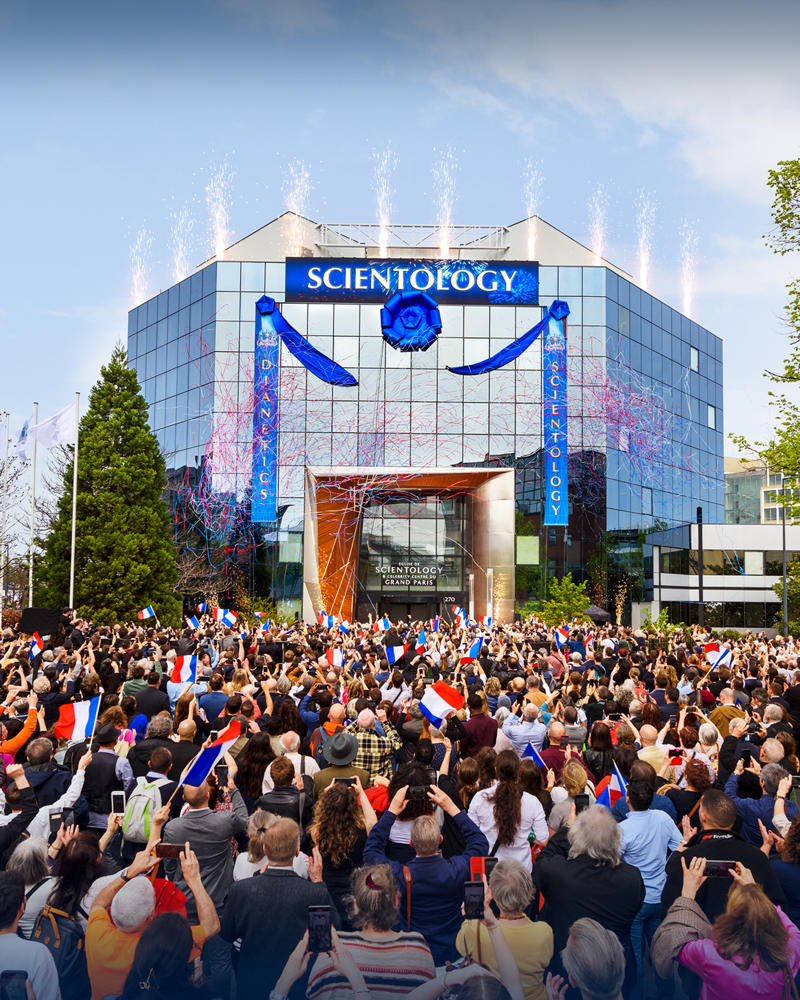Exploring Scientology: Insights into Its Practices and Philosophy
Exploring Scientology: Insights into Its Practices and Philosophy
Blog Article
Unmasking Myths: Separating Reality From Fiction About Scientology

Origins of Scientology
The origins of Scientology trace back to the mid-20th century when L. Ron Hubbard, a sci-fi author, founded the belief system in the 1950s. Hubbard's growth of Scientology stemmed from his earlier self-help system called Dianetics, which he introduced in the 1940s - Scientology. The shift from Dianetics to Scientology noted a change towards a more detailed spiritual philosophy that integrated facets of psychology, Eastern spiritual practices, and Hubbard's own theories on human existence
Hubbard's exploration right into the human mind and spirit brought about the creation of Scientology as a religion centered around the idea of spiritual knowledge and self-improvement via a process called auditing. Auditing, a form of spiritual counseling, aims to assist people get over mental and emotional barriers, called engrams, that prevent individual development and awareness.
As Hubbard's teachings got appeal, Scientology advanced right into a global motion with a substantial following. Regardless of conflicts and criticisms bordering its techniques and beliefs, Scientology remains to attract followers seeking spiritual satisfaction and personal advancement.
Core Beliefs and Practices

An additional basic aspect of Scientology is the concept of the Thetan, the spiritual significance of an individual that goes beyond the physical body. Followers aim to comprehend and enhance their link to the Thetan with different methods such as research study programs and purification rituals.
The Church of Scientology also positions a solid focus on the relevance of individual obligation and the belief that individuals have the power to shape their very own fates. With adherence to honest guidelines and the pursuit of self-improvement, practitioners of Scientology strive to attain better levels of happiness, success, and spiritual fulfillment.
Controversies and Objections
Amidst Scientology's core beliefs and techniques exists a landscape marked by controversies and objections that have sparked intense debate and examination. Additionally, Scientology's standing find out this here as a tax-exempt religious company in some countries has actually been a factor of opinion, with movie critics saying that its methods are extra similar to an organization than a religion.
One more location of debate borders the Church's therapy of movie critics and skeptics. Records have actually emerged of harassment, intimidation, and lawful hazards directed at those who speak up versus Scientology. This has increased worries concerning freedom of speech and the organization's dedication to openness and accountability.
While Scientology has vehemently rejected a number of these claims, the criticisms website link and disputes bordering the Church remain to fuel public skepticism and scrutiny.
Scientology's Influence in Society
With its existence in different fields of culture, Scientology's impact can be observed in both obvious and subtle ways, shaping communications and understandings. In the world of education and learning, the Church of Scientology has actually dealt with analysis for its initiatives to present its trainings right into schools through programs like "Applied Scholastics." Critics argue that such initiatives blur the lines between church and state, potentially impacting the educational experiences of pupils. In addition, Scientology's influence includes the realm of psychological health, where its views on psychiatry and psychology have stimulated disputes within the medical area. The church's anti-psychiatry stance has brought about suspicion and worries relating to the efficacy of mental wellness treatments. In the realm of home entertainment, Scientology's association with top-level stars has brought focus to the religious beliefs, both positively and adversely. The involvement of famous numbers in Scientology has, in some situations, served to promote the religion, while in others, it has actually drawn objection and increased questions concerning the church's methods and ideas.
Debunking Common Misconceptions
The Church of Scientology is legally acknowledged as a faith in several countries, including the United States, where it has tax-exempt condition. Like various other faiths, Scientology provides spiritual assistance and techniques for its participants.
An additional misunderstanding is that Scientology requires its members to cut connections with their family members. In truth, the church emphasizes the importance of family connections and motivates members to preserve healthy and balanced find here links with their enjoyed ones.

Final Thought
In verdict, it is important to separate fact from fiction when going over Scientology. By analyzing its beginnings, core beliefs, controversies, and influence in culture, we can unmask usual false impressions bordering this faith. It is crucial to approach the topic with a important and unbiased mindset in order to understand Scientology accurately and right.
Rooted in a structure of spiritual knowledge and individual development, Scientology's core beliefs and practices incorporate a varied variety of principles and rituals. Central to Scientology is the belief that human beings are never-ceasing spiritual beings that have actually forgotten their true nature. The participation of popular figures in Scientology has, in some cases, offered to popularize the religion, while in others, it has actually attracted criticism and raised inquiries concerning the church's ideas and methods.
The Church of Scientology is legally identified as a religious beliefs in numerous countries, consisting of the United States, where it has tax-exempt status. Like various other religious beliefs, Scientology offers spiritual guidance and techniques for its members.
Report this page